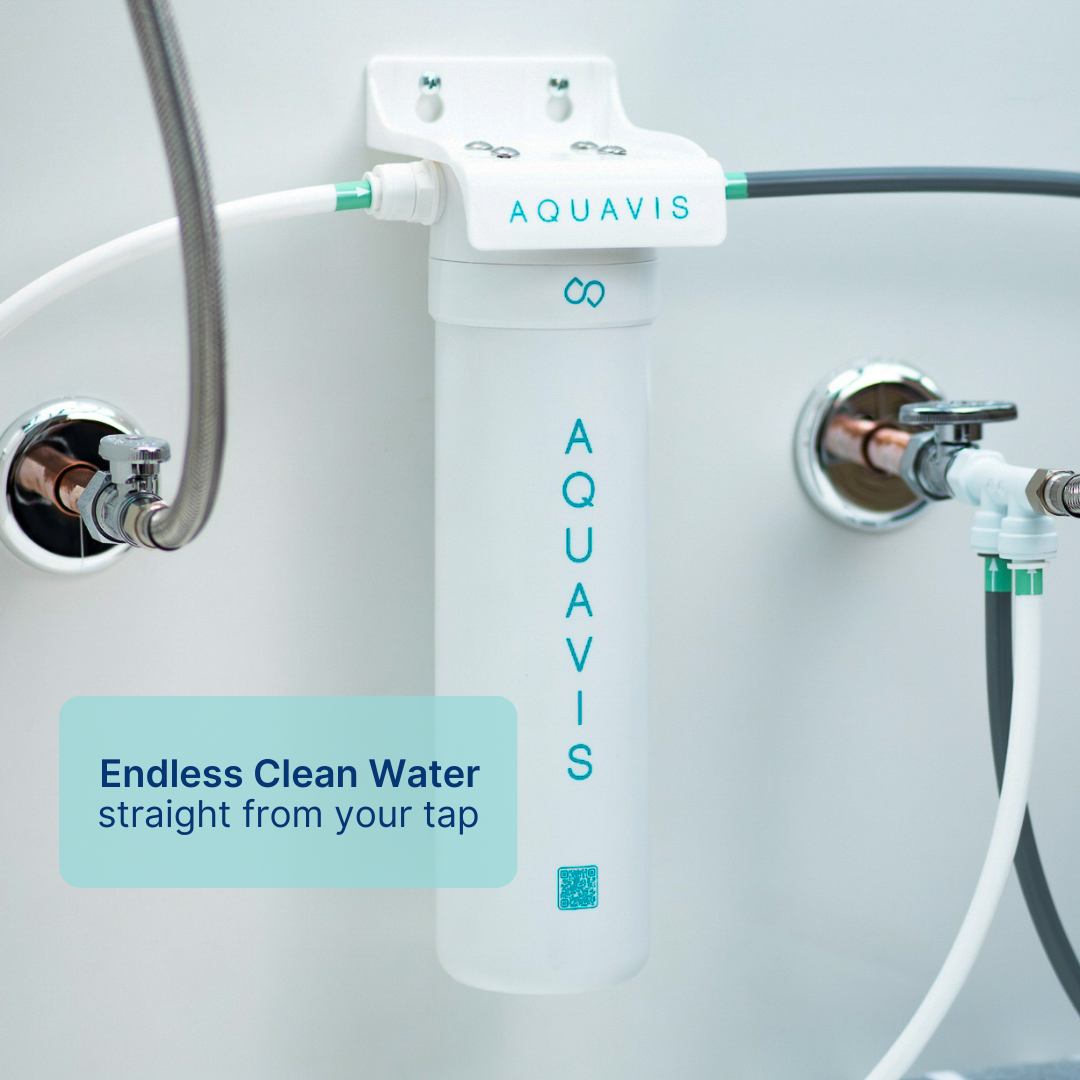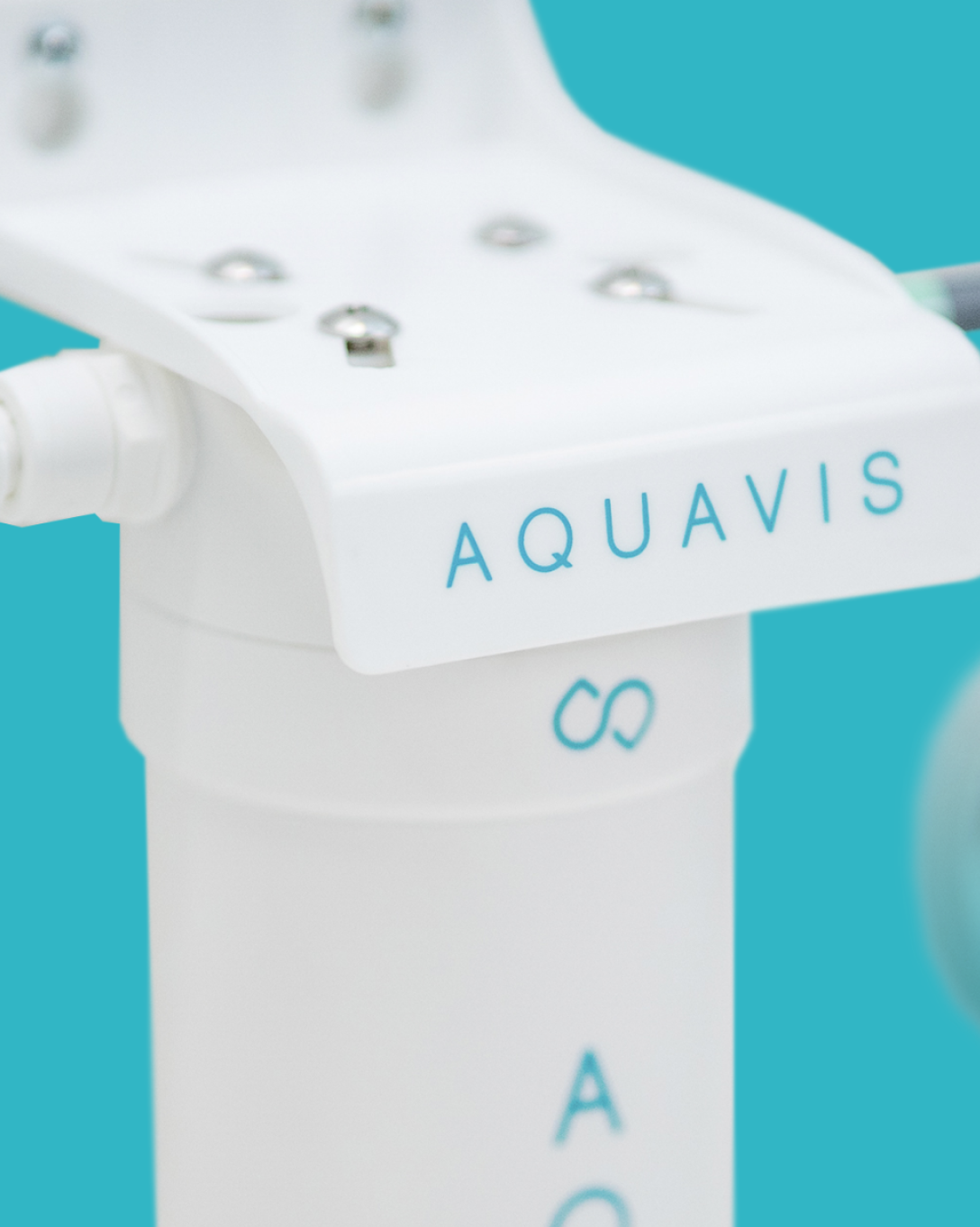We all have those not-so-fond memories of sitting in the dentist chair, our mouths chock-full of badly-flavored foam fluoride. But much to our inner child's chagrin, fluoride doesn't just stay in the dentist's office. In fact, fluoride is present in much of our drinking water across the United States.
Over the past 50 years, the levels of fluoride in drinking water have increased. While some of this fluoride occurs naturally, seeping into water sources like other minerals, much of it is added into the municipal water supply by city and state governments to help prevent tooth decay.
On occasion, the fluoridated water in certain areas can exceed the level recommended by the CDC. When this occurs, many citizens wonder how they can remove some of the fluoride from water, thinking that they need a sophisticated filtration system to lower these levels. But what about more simple systems like activated carbon water filters? Does this type of filter reduce fluoride levels?
Before we dive in, let's discuss what fluoride is, where it comes from, and how fluoride intake affects human health.
What Is Fluoride?
Believe it or not, fluoride is a naturally occurring mineral—not just something dentists created. In fact, it was first discovered by a recently graduated dental student who noticed that the citizens of Colorado Springs all exhibited mysterious brown stains on their teeth.
Upon conducting more research, the young man and his mentor concluded that the culprit behind this mottling of teeth was hiding in the city water supply. During their research, the pair made another astonishing discovery: whatever had turned the citizens' teeth brown had also made them remarkably resistant to dental caries and decay.
After further research by other professionals in the field, it was determined that excess exposure to fluoride in water had caused both the discoloration and unusual resistance to decay. These findings marked a major turning point in dentistry, ultimately encouraging the field to adopt a preventative approach to dental care.
Fluoride in Tap Water
The newly found effects of fluoride in water caught the attention of scientists and dentists alike. Initial conclusions were clear: excess intake of fluoride from a drinking water supply directly caused adverse health effects like fluorosis.
Subsequent studies, however, sought to explore the cavity-preventing properties of fluoridated water. Could drinking water with fluoride ions at a low or average level actually elicit dental health benefits?
This question was put to the test in 1945 when Grand Rapids, Michigan became the first city to adopt the process of water fluoridation. From there, several cities began adding sodium fluoride to their water treatment systems and processes.
Since the first trial in 1945, most cities across the United States have artificially elevated fluoride levels in their public drinking water to provide an effective solution for tooth decay.
What Are the Current Fluoride Levels in Drinking Water?
Though recommended, water fluoridation has never been mandated by the federal government. The CDC currently recommends that cities maintain the levels of fluoride at or below .7 mg/L (previously .7–1.2 mg/L prior to 2015).
According to data gathered by the CDC, "in 2020, 72.7% of the US population on community water systems, or 209,145,650 people, had access to fluoridated water."
Because water fluoridation is not mandated, city and state governments can forgo adding fluoride to their public water supplies. If you are unsure of your state or city water fluoridation level, you can find it using the CDC's "My Water's Fluoride" tool.
Are There Potential Health Risks of Excess Water Fluoridation?
As the old adage goes, you can have too much of a good thing. Though water fluoridation has helped promote dental health across America, we also know that water with a high fluoride content can be detrimental—thanks to the early discoveries made in Colorado Springs.
To avoid these adverse effects, the CDC has recommended that fluoride levels in water be no higher than .7 mg/L, while the WHO has recommended that these levels remain under 1.5 mg/L.
Since establishing the causational link between water with high fluoride content and dental mottling, further studies have shown that ingesting too much fluoride can also cause other health issues such as the following:
- Dental fluorosis
- Skeletal fluorosis
- Arthritis
- Osteoporosis
- Bone and muscle damage
- Fatigue
Thanks to the guidelines established by federal and world health experts, the fluoride concentration in most public water supplies will remain at safe, beneficial levels. However, it is possible that some cities have over-fluoridated water. This may be the result of artificially adding too much fluoride to the water supply, or failing control for the fluoride concentration in groundwater.
Has your city's level of fluoride exceeded the recommended maximum level? If so, you may be wondering about your options for fluoride removal. That's where activated carbon filtration comes in.
Do Carbon Block Filters Actually Remove Fluoride?
Just like other minerals, it is possible to remove fluoride from tap water. Obviously, you don't want the water filtration process to completely strip your water of healthy minerals—even fluoride—but a good water filter should help rid your water of any unwanted contaminants (such an excess levels of fluoride) or bad tastes.
More complex filters such as reverse osmosis systems can effectively remove harmful contaminants from water using a semipermeable membrane, however this process also strips the water of many helpful minerals that our bodies need to stay healthy—including beneficial levels of fluoride that protect teeth from decay.
Unlike RO systems, activated carbon filters like those from Aquavis help you strike an ideal balance between clean water and mineral-rich water, so you can keep your family safe while still providing them the nutrients their bodies need.
These under-sink water filtration systems improve your home's water quality by removing unwanted contaminants like heavy metals and chemicals while keeping healthy minerals at safe levels. Help your family stay hydrated, healthy, and cavity-free with an activated carbon filter like the Aquavis Pulse.
How Does a Carbon Block Water Filter Remove Fluoride?
Advanced activated carbon filters like those from Aquavis rid water of contaminants using a process called adsorption. During this process, water passes through a perforated carbon block before it reaches your tap.
As the water comes in contact with the carbon surface, contaminants are adsorbed into the carbon, much like metal is attracted to a magnet. From here, the newly cleansed water flows directly to your tap.
This process is quick and effective at removing what you don't want in your drinking water and keeping what you do.
What Else Do Carbon Filters Remove from Water?
Though regular carbon filters are more limited in what they can remove, activated carbon filters like the Aquavis Pulse can cleanse water from a variety of contaminants. Along with excess fluoride, Aquavis filters rid your water of heavy metals like lead, chemicals like chlorine, "forever chemicals" (PFAS), certain volatile organic compounds (VOCs), and cysts.
Excess Fluoride? Here's How Aquavis Can Help
When properly regulated, water fluoridation helps protect many Americans from dental cavities and decay. Too much fluoride, on the other hand, can have adverse effects on dental and general health. So how can you find a happy-medium? Aquavis is here to help!
Our carbon filters can lower excess levels of fluoride and remove harmful contaminants, while allowing some fluoride and other helpful minerals to remain. With activated carbon filters from Aquavis, you can help ensure that your family's tap water is safe, healthy, and full of the minerals their bodies need.
Visit our site to learn more about what Aquavis can do for you!


